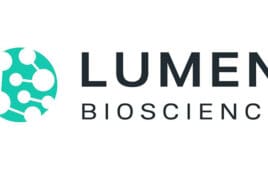 The FDA has granted InflaRx (Nasdaq:IFRX) emergency use authorization (EUA) for the monoclonal antibody Gohibic (vilobelimab) to treat critically-ill COVID-19 patients. The company’s shares were up yesterday almost 84% to $3.77. Today, its shares jumped an additional 62% to $6.10.
The FDA has granted InflaRx (Nasdaq:IFRX) emergency use authorization (EUA) for the monoclonal antibody Gohibic (vilobelimab) to treat critically-ill COVID-19 patients. The company’s shares were up yesterday almost 84% to $3.77. Today, its shares jumped an additional 62% to $6.10.
The EUA represents a significant advance for the Jena, Germany–based company, which on March 31, 2022, encountered a setback related to the antibody. At that time, the company announced that vilobelimab failed a topline readout for critically ill intubated patients suffering from COVID-induced pneumonia in the phase 2/3 PANAMO study. Later, however, InflaRx reported in a predefined analysis without site-stratification that vilobelimab significantly decreased all-cause mortality at 28 days. While the initial protocol did not require site-stratification, the company amended the protocol based on regulators’ recommendations.
Regulatory nod for vilobelimab could spark new developments in drug development

Dr. Niels Riedemann
The recent FDA authorization of the drug could lead to advances in the treatment of a variety of inflammatory conditions and even inspiring research into novel therapeutic approaches. Potential ways it could impact the market include the following:
- Validation of C5a as a novel target: Although vilobelimab remains investigational, it is the first control complement factor C5a to win a regulatory nod. “Gohibic is now the first authorized drug to control the complement Factor C5a, an important and often very harmful part of our body’s innate immune response,” InflaRx CEO and founder Dr. Niel Riedemann said by email. As a protein involved in inflammatory responses, C5a could hold potential for treating other COVID-19-related conditions and inflammatory diseases.
- Continued research relevance: Hospital admissions in the U.S. continue to decline and interest in developing COVID-19 therapies may be waning as demand for new vaccines falls. But the EUA for vilobelimab could still encourage more research into the complement system. “Our COVID-19 results underscore the anti-inflammatory potential of inhibition of the terminal C5a and C5a receptor pathways in other inflammatory diseases,” Riedemann said. The mode of action is likely “independent of the viral variant,” he added.
- Potential for additional applications: InflaRx is exploring the development of vilobelimab for non-COVID-19 related conditions, such as Pyoderma Gangrenosum (PG), a life-threatening inflammatory disease. It is also testing its potential for cutaneous squamous cell Carcinoma (cSCC), a type of skin cancer. For PG, the company has had positive phase 2a data. It released encouraging topline data from a phase 3 trial in the first quarter of 2022. “Our other programs are currently continuing as planned,” Riedemann said. “Indeed, we are initiating a phase 3 trial with vilobelimab in pyoderma gangrenosum.” Other companies may follow suit in exploring the potential of the complement system for a variety of inflammatory diseases as well as for oncology applications.
- Reinforce interest in biologics: The EUA for vilobelimab could spur renewed interest in biologics as potential treatments for COVID-19 and other diseases. Admittedly, the current level of interest is strong, growing at 9.1% annually, according to the research firm Market.us. But the FDA authorization of vilobelimab, a first-in-class drug, also underscores the potential for biologics to treat complex diseases. “We are evaluating the broadening of research to potential future applications in other viral lung injury and viral sepsis-causing diseases, including those where the mechanism has already been confirmed in pre-clinical models.” Riedemann noted.
- Global market expansion: The EUA in the U.S. and positive pre-submission meetings with the European Medicines Agency (EMA) may prompt further interest in vilobelimab in other markets. “We will continue discussions with the FDA related to assessing a path to a full [biologics license application] for approval of vilobelimab to treat COVID-19 patients,” Riedemann said “We have completed encouraging meetings with the rapporteur and co-rapporteur teams of the European Committee for Medicinal Products for Human Use (CHMP) related to a planned Marketing Authorization Application with the European Medicines Agency,” Riedemann noted. The company is also moving forward with a pivotal phase 3 clinical development program in PG and plans to begin patient enrollment in a multinational, randomized, double-blind, placebo-controlled trial around mid-2023, Riedemann said.
Filed Under: Infectious Disease



